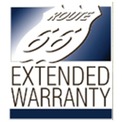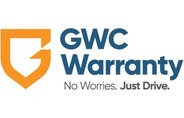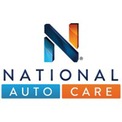Best Extended Car Warranty Companies of 2023
Extended car warranties help protect you from the costs of expensive vehicle breakdowns, but finding the perfect one for you can be a time-consuming task — especially since the industry has been heavily targeted by scam companies.
Our research team compared 50 popular auto warranty companies and chose our top seven extended auto warranty picks based on coverage options, customer reviews, available plans, waiting periods and other factors. For more detail on how we selected our top picks, read our full methodology. Our picks may be Authorized Partners who compensate us — this does not affect our recommendations or evaluations but may impact the order in which companies appear.
Our editor's top picks
- Our pick for good customer service: Endurance Auto Warranty
- Our pick for high mileage vehicles: CarShield
- Our pick for wide coverage selection: CARCHEX
- Our pick for no waiting period: olive
- Our pick for maintenance benefits: Omega Auto Care
- Our pick for no down payment: Toco Warranty
- Our pick for good value: Concord Auto Protect
Note to California residents: California state regulations prevent any business other than a car dealership from selling vehicle service contracts, but you can purchase mechanical breakdown insurance from several companies on our list.
- Our recommendations are based on what reviewers say.
- 4,338,283 reviews on ConsumerAffairs are verified.
- We require contact information to ensure our reviewers are real.
- We use intelligent software that helps us maintain the integrity of reviews.
- Our moderators read all reviews to verify quality and helpfulness.
Compare our top 7 extended car warranty companies
| Endurance Auto Warranty | CarShield | CARCHEX | olive | Omega Auto Care | Toco Warranty | Concord Auto Protect | |||
|---|---|---|---|---|---|---|---|---|---|
| Primary | Endurance Auto Warranty | Read reviews | Customer Ratings 4.4 | Our pick for
Good customer service
| Available plans
12
| Maximum mileage
Unlimited
| Waiting period
60 days and 1,000 miles
| Availability
Most states
| |
| Primary | CarShield | Read reviews | Customer Ratings 4.5 | Our pick for
High mileage vehicles
| Available plans
7
| Maximum mileage
300,000
| Waiting period
30 days and 1,000 miles
| Availability
Most states (not CA)
| |
| Primary | CARCHEX | Read reviews | Customer Ratings 4.3 | Our pick for
Wide coverage selection
| Available plans
5
| Maximum mileage
250,000
| Waiting period
30 days and 1,000 miles
| Availability
Nationwide
| |
| Primary | olive | Read reviews | Customer Ratings 4.4 | Our pick for
No waiting period
| Available plans
3
| Maximum mileage
140,000
| Waiting period
None
| Availability
Most states (not FL)
| |
| Primary | Omega Auto Care | Read reviews | Customer Ratings 4.1 | Our pick for
Maintenance benefits
| Available plans
5
| Maximum mileage
250,000 miles
| Waiting period
30 days and 1,000 miles
| Availability
Nationwide
| |
| Primary |  | Toco Warranty | Read reviews | Customer Ratings 5.0 | Our pick for
No down payment
| Available plans
4
| Maximum mileage
250,000
| Waiting period
30 days and 1,000 miles
| Availability
Most states (not AK, MO or WA)
|
| Primary |  | Concord Auto Protect | Read reviews | Customer Ratings 4.6 | Our pick for
Good value
| Available plans
3
| Maximum mileage
120,000
| Waiting period
30 days
| Availability
Nationwide (not CA)
|
Need help making a decision?
More details about our top 7 extended car warranty picks
- Levels of coverage: 12
- Maximum mileage: Unlimited
- Waiting period: 60 days and 1,000 miles
- Availability: Most states
Endurance stands out for offering benefits many others don’t — including key fob replacement, a collision discount and Total Loss Protection benefit programs — and for consistently providing above-average customer service.
While Endurance lists three plans on its site, the company has 12 total plans. A company representative can help determine which plan best fits your needs. The company also offers mechanical breakdown insurance for California residents.
What we like
What to consider
Available plans
- Secure Plus: The company’s most basic plan covers 10 component groups (powertrain plus air conditioning, brakes, steering and electrical).
- Superior: This mid-tier plan adds coverage for your suspension, fuel system and cooling system.
- Supreme: This plan offers exclusionary coverage (meaning all parts but exceptions listed in your contract).
What reviewers say
“The plan was extremely reasonable and affordable. It's less than $125 per month,” said a reviewer in South Carolina . “I have a BMW, so my premiums typically range way more than that. The military discount made things even sweeter and took my decision over the top.”
“I canceled my other policy because Endurance covered more, and it was the most affordable,” a reviewer in Ohio said. Another reviewer in Louisiana said their coverage “came to about $1,000 a year.”
- Levels of coverage: 7
- Maximum mileage: 300,000
- Waiting period: 30 days and 1,000 miles
- Availability: Most states (not CA)
CarShield has comprehensive coverage options, wide availability and great reviews. It also has flexible monthly payment plans, and you can transfer most contracts. But it stands out for covering cars with up to 300,000 miles, one of the highest limits among extended auto warranty companies.
CarShield’s plans are administered by American Auto Shield. Most contracts come with 24/7 roadside assistance and some include rental car reimbursement.
What we like
What to consider
Available plans
- Aluminum: The Aluminum plan specifically covers sensitive and expensive electronics like the engine control module (ECM), infotainment/GPS and more.
- Silver: The company’s most basic plan is essentially a powertrain extended warranty.
- Gold: This plan adds coverage for your water pump, alternator, power windows and more.
- Platinum: The Platinum plan is a stated-component plan that adds a few more component groups to Gold coverage.
- Diamond: The company’s Diamond plan is an exclusionary plan, making it CarShield’s most comprehensive plan.
CarShield also offers an extended warranty for motorcycles and ATVs.
What reviewers say
As with most car warranty companies, CarShield has received a few complaints from people who had claims denied after a breakdown. This is why it’s so important to understand your coverage before you sign up.
“They covered my air conditioning compressor in full on my 2010 Cadillac, which could have ran me $1,500 to $2,000,” a reviewer in Illinois said, adding that “it was very seamless after my mechanic called their office. I would definitely recommend [the company] to all people out there, especially if you don’t have a lot in [your] savings account.”
- Levels of coverage: 5
- Maximum mileage: 250,000
- Waiting period: 30 days and 1,000 miles
- Availability: Nationwide
CARCHEX offers more coverage plans (22 options across five levels of coverage) than our other top picks because it works with multiple warranty providers. It’s a good pick for anyone who wants instant quotes online for up to 10 years of coverage.
Each plan — whether it’s Bronze, Silver, Gold, Platinum or Titanium — offers term options that range from monthly to at least five years. If you’re looking for comprehensive, exclusionary coverage, check out Titanium plans.
In addition to repair costs, plans cover 24/7 roadside assistance, gas delivery, towing, rental car coverage and trip interruption service. They also come with CARCHEX’s “no-haggle, low price, everyday guarantee.” CARCHEX requires small down payments and lets you spread the remaining cost over six to 24 months.
What we like
What to consider
Available plans
- Powertrain: This plan serves as a basic warranty that covers the most common engine and transmission failures.
- Powertrain Plus: The Powertrain Plus plan adds coverage for many other major vehicle systems.
- Platinum: This plan is CARCHEX’s most comprehensive stated-component coverage.
- Titanium: The Titanium tier is exclusionary coverage, meaning it covers everything except a list of items stated in your contract.
- Extra Care: The Extra Care coverage helps pay for repairs outside of the powertrain, including components from the steering, brake, suspension and electrical systems.
What reviewers say
"The rep explained everything that he was supposed to and the questions that I had, so I went into CARCHEX with a clear understanding,” a reviewer in Maryland said. “It’s supposed to be the best warranty, so that's what I got. If you get three repairs with the average being about $1,200, the policy is paid.”
“I have a super expensive vehicle and if it breaks, that would be very expensive,” a reviewer in Nevada told us. “Once I got the policy set up, CARCHEX's website to pay was user-friendly and it allowed me to set up extra options for those going through the process.”
A reviewer in Arizona renewed for another four-year term: “I know the priceyness of some of these repairs, especially if you got a valve cover gasket that is leaking. … If I could get that covered under this warranty, it's peace of mind more than anything else.”
- Levels of coverage: 3
- Maximum mileage: 140,000
- Waiting period: None
- Availability: Most states (not FL)
Female-owned and -founded, olive stands out for letting you purchase a policy from its slick website in minutes and be covered instantly. That’s quite the departure from the industry-standard 1,500-mile waiting period. (We still recommend sending your extended warranty provider a vehicle inspection report, which typically costs around $200, so there’s a record of what is and isn’t a preexisting condition).
Olive lets you receive a quote and purchase a policy and manage your account entirely online. It also scores high marks for customer service, making the company easy for us to recommend.
What we like
What to consider
Available plans
- Powertrain: The company’s most basic plan covers what you’d expect: engine, transmission and drive systems.
- Powertrain Plus: This plan adds coverage for steering, braking, A/C and heating, electrical and a handful of other systems.
- Complete Care: Olive’s Complete Care plan effectively extends your factory bumper-to-bumper warranty, offering exclusionary coverage that protects the majority of parts on the car.
What reviewers say
“With olive, I'd make monthly payments of $126 for a $250 deductible, which works out better,” a reviewer in Minnesota said. On the other hand, a few say that the claims department can take a little while to call back.
“What I really liked about it is it wasn't one of those warranties that's like, ‘Well, you got to go six years, 185,000 miles. It's going to cost you $4,800,’” an olive customer told us via phone survey. “And with this particular one, it was like, ‘Look, we will warranty your truck up to 185,000 miles, but it'll only be three years.’”
- Levels of coverage: 5
- Maximum mileage: 250,000 miles
- Waiting period: 30 days and 1,000 miles
- Availability: Nationwide
One of the hidden stipulations of any extended auto warranty is that you must perform all the recommended maintenance in your owner’s manual (e.g., new tires, brakes, oil changes) and keep your receipts. Otherwise, your provider may deny your claims on the basis that you didn’t take care of the car.
That’s why we applaud Omega Auto Care for actually helping you out, partially or fully compensating you for oil changes, brake pads, new wiper blades and cooling system maintenance during your warranty term.
In total, the included maintenance program could save you north of $500 on top of the company’s other benefits, such as roadside assistance, tire repair, rental car reimbursement and trip interruption coverage.
What we like
What to consider
Available plans
- Powertrain: Omega’s lowest-tier plan covers your engine, transmission and other drivetrain-related components.
- Powertrain Plus: The Powertrain Plus plan adds coverage for a few miscellaneous parts to the Powertrain plan.
- Powertrain Enhanced: Another step up from the Powertrain Plus plan, this coverage adds a few more miscellaneous parts, including many pricey electrical components (e.g., window power regulators).
- Used Stated: The Used Stated plan covers a large number of parts across all systems, similar to other providers’ Gold plans.
- Exclusionary: Offers bumper-to-bumper coverage with only a handful of exceptions, as the name implies.
What reviewers say
“When I needed service for my transmission, I just brought my car into the dealership and let them know what extended warranty I had,” said one customer from Louisiana . “They dealt with the people and got everything going. … It’s very important to have coverage. That saved me $6,000.”
Other customers noted the maintenance benefits Omega offers, noting that it helped them save money on routine automotive care.
“I was looking for a full bumper-to-bumper coverage, and I got everything that I wanted, plus a maintenance care [benefit],” said a customer from Florida . “We just put brakes on my wife’s vehicle and they covered up to a couple of hundred dollars on the brake replacement.”
- Levels of coverage: 4
- Maximum mileage: 250,000
- Waiting period: 30 days and 1,000 miles
- Availability: Most states (not AK, MO or WA)
Toco Warranty takes a unique approach to its available plans. Instead of offering three plans to choose from, Toco has a single plan with different levels based on your vehicle’s current mileage.
Vehicles under 100,000 miles get the Orange level, which is essentially bumper-to-bumper coverage, while vehicles with more than 100,000 miles receive Yellow (a Gold equivalent). Vehicles with 150,000 miles get Blue-level coverage (a Silver equivalent), and vehicles with 200,000 miles are covered at the Green level (you guessed it: powertrain) until they reach 250,000 miles.
Toco also doesn’t require a down payment for coverage and offers pay-as-you-go coverage, which is significantly more convenient than jumping through hoops to cancel a policy.
What we like
What to consider
Available plans
- Orange: This level of coverage is available for cars with less than 100,000 miles. It’s effectively an exclusionary bumper-to-bumper warranty.
- Yellow: Once your car passes 100,000 miles, you receive Yellow-level coverage, which is similar to Orange but has more exclusions, including exhaust components and safety systems.
- Blue: Vehicles with 150,000 miles are covered under the Blue level, which removes coverage for technology and infotainment.
- Green: The company’s powertrain-equivalent plan covers vehicles with more than 200,000 miles. While the coverage lasts until your car reaches 250,000 miles, you must purchase the plan before your vehicle reaches 200,000 miles.
What reviewers say
“My customer representative Matthew was AWESOME. He was very patient and explained everything. He answered all my questions that I had. The price I was given was great for a bumper-to-bumper warranty,” a reviewer in Maryland said.
“The perks are great too! $40 credit towards oil changes and the first month free is hard to resist,” according to a reviewer in North Carolina .
- Levels of coverage: 3
- Maximum mileage: 120,000
- Waiting period: 30 days
- Availability: Nationwide (not CA)
Concord stands out for offering a $0 deductible option — which isn’t as common as you might think — and for not offering bumper-to-bumper coverage. Instead, the highest plan you can get is Premium, which is the equivalent to competitors’ mid-tier Gold-level plans.
Presumably, this has enabled Concord to sell plans more affordably across the board. The company is known for undercutting the competition on price, which has attracted buyers who don’t necessarily need exclusionary, platinum-level coverage.
What we like
What to consider
Available plans
- Powertrain: This plan covers the usual powertrain components (engine, transmission and drive axles) plus cooling and brakes.
- Advanced: Concord’s mid-tier option adds coverage for electrical components, your AWD or 4x4 system and steering.
- Premium: Concord’s most comprehensive plan provides stated-component coverage rather than exclusionary coverage. It adds coverage for heating and A/C, your fuel system, suspension and more but still isn’t exclusionary/bumper-to-bumper coverage.
What reviewers say
According to a reviewer in Idaho , Concord is “anywhere from $1,400 to $3,600 less expensive than others. … For the difference in price, with what appears near-identical terms, 30-day wait, $100 deductible, etc., I'll gamble.”
“The price for the coverage I selected was very good. I was able to get bumper-to-bumper coverage for up to 150,000 miles. Could not get a better deal elsewhere,” a reviewer in Nevada said.
Read extended car warranty reviews | ||||||
|---|---|---|---|---|---|---|
Compare
| Direct administrator and obligor for most types of plans. Covers vehicles up to 20 years old and with up to 200,000 miles. Waiting period is 30 days and 1,000 miles. Offers 30-day refund guarantee. Not available in California. | Get Pricing Call Center Open (800) 270-3193 | ||||
Compare
| Offers auto warranties for new and used vehicles. Has three plans available, plus custom options. Network of 50,000+ ASE-certified mechanics. Most plans are transferable. No published pricing or sample contracts. |  | Get Pricing Call Center Open (833) 930-0227 | |||
Compare
| Accepts luxury, vintage and exotic vehicles. Cancel within 30 days for a full refund. Live customer support offered daily. Can go to any dealership or repair facility. Roadside assistance included. Offers locksmith policy. |  | Get Pricing Call Center Open (888) 490-6672 | |||
Compare
| Accepts cars up to 10 years old with up to 140,000 miles. Offers three plans with flexible deductibles and fixed monthly pricing. No waiting period or yearly mileage restrictions up to 185,000 miles. Available nationwide. |  | ||||
Compare
| Vehicle mechanical breakdown coverage with no required vehicle inspection and first-day coverage. No deductible for mechanical parts and labor. Includes 24/7 emergency roadside assistance. Three plans. Cancel any time. | Get Pricing Call Center Open (833) 668-7848 | ||||
Compare
| Online marketplace with multiple plans from different third-party providers. Three tiers of coverage. Provides 30-day money-back guarantee. Customer support available 24/7. Cancel your plan anytime. Quotes in less than a minute. |  | Get Pricing | |||
Compare
| Offers exclusionary, used stated and powertrain protection for cars with up to 250,000 miles and 15 years old. Waives deductible if you go to a RepairPal-certified shop. Member of the Vehicle Protection Association. |  | ||||
Offers vehicle service contracts. Three plan options: drivetrain, intermediate and exclusionary. No deductible. Available nationwide. Total loss refund. Transferable to a new owner. Only available through partner institutions. |  | Chat with a ConsumerAffairs decision guide Live agent | ||||
Compare
| Offers vehicle service contracts for cars up to 20 years old and up to 250,000 miles in most states. Plans available with no down payment and three-year terms. Waiting period is 30 days and 1,000 miles. |  | ||||
Direct provider of three tiers of coverage. Offers 0% interest payment programs and a 30-day refund policy. Available in all 50 states. |  | Chat with a ConsumerAffairs decision guide Live agent | ||||
How do extended car warranties work?
A car warranty is a contract between you and the warranty provider — the manufacturer or a third party — that states the provider will help cover the cost of repairs following a breakdown.
Extended car warranties help pay for repairs or replacements for parts failure, but they do not cover damage caused by accidents or misuse.
The key word is breakdown. The most common misconception about warranties is that they cover everything: chips, dings, flood damage, worn leather, etc. In reality, warranties cover none of these things — they cover parts that fail entirely on their own and not as a result of damage (more on this later).
Car warranties typically have deductibles ranging from $0 to $200 and always expire after a certain time or mileage. You’ll see car warranties written out as “three years/36,000 miles,” which means it expires after three years or 36,000 miles, whichever comes first.
After your factory car warranty expires you can buy an extended car warranty, commonly referred to as a vehicle service contract. A typical extended warranty term is 10 years/100,000 miles. This doesn’t mean it adds 10 years to your three-year factory warranty, but rather that your new warranty expires when your vehicle is 10 years old. In effect, you’re purchasing an additional seven years/64,000 miles of coverage on top of your three-year/36,000-mile factory warranty.
» READ MORE: Car warranty guide: what you need to know
What does an extended car warranty cover?
Generally speaking, car warranties only cover manufacturer defects. In other words, they only cover parts that fail entirely on their own during normal, everyday driving. Car warranties do not cover failures due to damage, bad weather, abuse or lack of maintenance (e.g., missed oil changes).
Let’s say you’re driving down the road and your infotainment system suddenly stops working for no discernible reason. Nothing happened to it; it just went black. A part failure like this would very likely be covered under warranty.
However, if you spill coffee on it first, that would not be covered under an extended warranty. Again, the general idea of a warranty is to protect you from factory defects, not damage.
In terms of which parts are covered, not all car warranties are built the same. Some cover a few dozen parts, while some cover 5,000-plus parts. It mostly depends on whether the warranty is inclusionary or exclusionary.
- Inclusionary warranties cover only the parts listed in the warranty.
- Exclusionary warranties cover all parts except the ones listed in the warranty.
A great example of an inclusionary warranty, also known as a stated-component warranty, is your standard powertrain warranty. Most powertrain warranties only cover 50 or so parts inside your engine, transmission and drive systems. In other words, a powertrain warranty only covers the absolute most essential parts needed to make your car go.
On the other end of the spectrum, you have your exclusionary warranties. “Bumper-to-bumper” and “Platinum” are labels typically reserved for exclusionary warranties, which cover virtually everything on your car except wear and tear, cosmetics and the excluded parts listed in your contract.
Types of extended car warranties
Depending on your car’s age and mileage, you should have a variety of extended car warranty plans to choose from. Keep in mind that the most comprehensive warranties are typically reserved for cars with less than 100,000 miles on the odometer.
Extended warranties can be purchased from a third-party company. Some car manufacturers also offer extended warranties.
- Exclusionary warranties: These warranties, which are also called bumper-to-bumper warranties, offer exclusionary coverage — rather than stating what your warranty covers, your contract shows what isn’t covered. Third-party companies may call these plans “Platinum,” “Diamond” or something similar.
- Midtier stated-component warranties: These are typically called “Gold” warranties by third-party companies. Your contract states which components are covered for these warranties. Be sure to check the price against the exclusionary plan if your car qualifies for both. Exclusionary plans tend to be far more comprehensive for only a slight increase in cost.
- Powertrain warranties: These warranties effectively extend your factory powertrain warranty, as the name implies.
- Drivetrain warranties: A drivetrain warranty is similar to a powertrain warranty but does not cover the engine.
- Wrap warranties: These plans are designed for those whose cars are still under a manufacturer’s powertrain warranty.
You may also see labels like “Supreme” or “Gold Plus,” but for the most part, 95% of extended warranty plans are just Platinum, Gold or powertrain by another name.
Manufacturer warranties
All new cars come with a manufacturer warranty, also called a factory warranty, that's backed by the car maker. The minimum factory warranty is three years/36,000 miles, and factory warranties are transferable to new owners.
Even if you purchased a used vehicle, it may still be under the factory warranty. To find out about your vehicle’s factory warranty, check out our car warranty check by VIN. And to see which automakers offer the best factory warranty in 2023, check out our guide to the best new car warranty.
» LEARN: What is a manufacturer’s warranty?
What extended car warranties won’t cover
We’ve touched on what car warranties don’t cover, but let’s fully break that down to prevent any misunderstandings or false expectations. Car warranties — factory or extended — typically will not cover:
- Damage, negligence or abuse: If the warranty company can link a part failure to damage (e.g., rear-end collision causing emissions failure), negligence (e.g., missed oil changes causing engine damage) or abuse (e.g., doing donuts in the Walmart parking lot), it will deny your warranty claims for repairs and may void your warranty entirely.
- Preexisting conditions: If it was a problem on the vehicle before your warranty became active, your warranty won’t cover it. Many extended auto warranties have 30-day/1,000-mile waiting periods to prevent consumers from purchasing them the minute they break down.
In addition, breakdowns or part failures that you can’t prove happened during the warranty period may not be covered, which is why we strongly suggest you get a dealer inspection report (typically around $150) in tandem with your warranty purchase.
- Routine maintenance: Most car warranties won’t cover regular maintenance items like oil changes, filter changes, tire rotations, fluid top-offs, alignments and more. You’ll be required to stick to the regular maintenance schedule in your owner’s guide and prove that you’re maintaining your car in order to keep your warranty active. Keep your receipts!
- Cosmetics: Unless otherwise stated, most warranties will not cover upholstery, dashboards, trim, fabrics, leather and other visual items that don’t impact the function of the car.
- Regular wear and tear: Items that are expected to need replacing after a certain mileage won’t be covered. That typically includes your brakes, tires, wiper blades, clutch and more.
- Off-road or racetrack use: Your warranty likely won’t cover parts that fail while you’re off-roading or tracking your car. Certain specialty vehicles may be covered (e.g., Jeep Wranglers or Z06 Corvettes) but never assume they are — check your contract.
- Aftermarket parts: The Magnuson-Moss Act prohibits companies from voiding your warranty simply because you installed an aftermarket part. However, if that part causes a factory part to fail (e.g., a lift kit ruining your truck suspension), neither part will be covered under warranty.
Extended car warranty costs
An extended car warranty typically costs around $2,500. Sometimes the warranty company will require a lump-sum payment, while other times it may offer a financing plan (e.g., $70 a month for 36 months). An increasingly popular option is to let warranty holders pay month-to-month, which lets you cancel anytime.
Costs can vary based on numerous factors. If you drive a $90,000 BMW M4, you can expect to pay significantly more for warranty coverage than the driver of a $30,000 Mazda Miata.
» LEARN: How much does an extended car warranty cost?
Factors that impact the cost of your extended auto warranty
The best extended car warranty companies examine multiple factors, including your vehicle’s make, model, condition and location, when quoting a price for coverage. Some of the most significant factors that affect the price of your extended auto warranty include:
- Vehicle make, model and year: Warranties tend to cost more for luxury vehicles, sports cars and other expensive cars since these vehicles tend to require pricier parts and labor.
- Vehicle expected reliability: Warranties typically cost significantly more for vehicles with known build quality issues and below-average expected reliability. A warranty on an Alfa Romeo will almost always cost more than the equivalent warranty on a Mazda.
- Vehicle mileage: Expect to pay more if your odometer reading is higher. Warranty providers know higher-mileage vehicles are more likely to need repairs.
- Level and length of coverage: Bumper-to-bumper plans with comprehensive, exclusionary coverage cost the most, while simple, stated-component warranties that only cover essential parts, such as powertrain and drivetrain warranties, are the most affordable. Also, plans with longer coverage periods have higher costs.
- The deductible: Most car warranties require a deductible, though some companies offer zero-deductible policies. A typical deductible for a repair or replacement is $100. All else being equal, the higher a deductible is on a policy, the less expensive it is.
- Your driving habits: Before buying an extended auto warranty, you’ll probably be asked about how you use your vehicle and how much you drive. If you spend a lot of time in the car, the price of a contract can be higher.
- Annual mileage: Most warranty companies will ask you to estimate how many miles you put on the car each year, although it’s unclear how this may impact your rate. Drivers who commute 20,000 miles per year will encounter part failures more often but will also run out of warranty faster.
- Special use and aftermarket parts: Commercial use (such as using your vehicle for Lyft or to carry construction materials), regular towing use or installing aftermarket parts may impact your rates (or lead to your claim being denied).
Is an extended car warranty worth it?
While an extended warranty may sound like a great investment on paper ($2,500 to keep your $40,000 car on the road), it’s important to remember that even the most robust Platinum-level warranty can be full of holes, exclusions and exceptions.
A warranty is not a bulletproof guarantee that every part will be covered; it covers only some parts in some cases, some of the time. We think an extended warranty might be worth it under the following conditions:
- You drive a vehicle with below-average reliability: If your vehicle has cheap, infrequent repairs, you’re probably fine paying out of pocket. But, if you plan to purchase a brand not known for its reliability, an extended warranty may be a wise investment.
- The cost of the warranty is less than the expected cost of repairs: Look at the expected annual cost to repair your vehicle and multiply it by the years you plan to own it. Is the cost of the extended warranty significantly less? If so, it might make mathematical sense to invest in one, even if it doesn’t cover 100% of expected repairs (which it won’t).
- You don’t mind paying for peace of mind, even if you never file a claim: Some folks just sleep better knowing they're partially protected against surprise repair bills. Just don’t make the common mistake of thinking your warranty will cover 100% of parts 100% of the time.
Unless you meet these conditions, you may save money by simply paying out of pocket for repairs instead of investing around $2,500 or more in a warranty.
If you haven’t yet purchased a vehicle, consider that the best “extended warranty” may simply be to purchase a historically reliable vehicle (Toyota, Lexus, Mazda, etc.) and keep up with regular maintenance.
» READ MORE: Pros and cons of extended auto warranties
What reviewers say about extended car warranties
Are consumers who invested in an extended warranty happy with their purchase? Tens of thousands of verified reviews on ConsumerAffairs would indicate that, yes, they’re happy for the most part.
“The deductible was $500. But I’m okay with that because the repairs were up in the $2,000 range,” said one olive reviewer from California. “I’m very satisfied.”
One CarShield customer noted that the auto warranty provider helped protect them from an allegedly dishonest dealership: “The car dealership … tried to rip us off [and have us] buy a whole new engine when we didn’t need it all,” they said. “We needed … a fuel pump and not a whole new engine. Thankfully, thanks to CarShield our car is back up and running, and I don’t need to dish out $8,000 for a whole new engine."
It’s worth noting, however, that the majority of our verified reviewers do not appear to have submitted a claim yet. Among those who have, the results are more mixed.
The deductible was $500. But I’m okay with that because the repairs were up in the $2,000 range.”
In some cases, their dissatisfaction may have stemmed from an alleged misunderstanding of their coverage limitations, such as a California reviewer who was frustrated after discovering their warranty did not cover consumable parts such as batteries, tires and brakes.
While the most common complaints from customers who purchased an extended car warranty revolve around disputes over what should (and shouldn’t) be covered, other reviewers have noted communication issues with their providers.
In short, your experience may vary — but you can certainly improve your chances of being satisfied with an extended warranty purchase by following these four steps:
- Identify the right amount of coverage for your vehicle to cover known issues.
- Research customer reviews to see which companies have more complaints (and what those complaints are).
- Read your contract terms extremely carefully to prevent surprises.
- Compare quotes from several companies to ensure you get the lowest possible price with an extended warranty company that fits your needs.
How to find the right extended car warranty
Finding the right extended warranty takes some time and research. Don’t just go with the first offer you get, even if it’s from a top-rated company. Prices, benefits and coverage can vary between providers, so it pays to shop around.
Here’s how to find the best extended warranty for your car:
- Consider the amount of coverage you need: While exclusionary warranties tend to offer the best value, you might also consider a powertrain warranty if you’re on a strict budget and all you need is protection for your engine, transmission and drive systems.
- Compare reviews: As mentioned, many 5-star reviews about vehicle service contract companies refer to the initial customer service and sign-up process. Friendly reps are a plus, but what you really care about is whether the plan is worth your money.
Look for positive reviews about the claims submission process, speed and ease of getting claims approved and quick payouts for repairs. If you read about difficulty filing claims or patterns of rejected claims, be wary. And be sure to avoid our lowest-rated extended auto warranty companies.
- Consider the waiting period: Many plans require you to wait up to 30 days and 1,000 miles before you can request service. This is intended to prevent car owners from getting repairs on preexisting conditions. However, for some drivers, it could take several months to put another thousand miles on the odometer. Some companies, like olive, offer plans with no waiting period.
- Look for perks: Extended warranties commonly include perks like 24/7 roadside assistance, reimbursement for rental cars and especially trip interruption insurance, which compensates you up to $200 per day if your vehicle breaks down 100-plus miles from home.
These perks could be worth $1,500 alone, so be sure to keep an eye out for them as you shop and use them after purchasing an extended car warranty.
- Read the fine print: Be sure you understand what is and isn’t covered. Ask about any restrictions or conditions that might void your coverage. If you prefer having more control over the specifics of your coverage, look for a company that offers multiple plans or lets you customize your coverage.
- Consider the cancellation and refund policy: If you think you might want to sell your car before the warranty expires, make sure the company lets you transfer the coverage to the next owner — and ask if there’s a fee. This could be a selling point to potential buyers. For more, here are the right questions to ask and tips to help you avoid car warranty scams.
» READ MORE: How to choose an extended car warranty
Vehicle service contracts vs. manufacturer warranties vs. car repair insurance
As you shop around, you may also encounter these three terms. They can be a bit confusing at first, so here’s a clear breakdown:
- Vehicle service contracts: In a broader sense, a “vehicle service contract” is just a contract to service or repair your vehicle under certain conditions. All extended warranties are vehicle service contracts (which is why you’ll often see the terms used interchangeably), but not all vehicle service contracts are extended warranties.
Sometimes, companies sell routine maintenance plans (e.g., prepaid oil changes) as vehicle service contracts too, so just be sure you know what you’re buying.
- Manufacturer warranties: These are synonymous with factory warranties. You may also see them abbreviated as OEM warranties, which stands for "original equipment manufacturer."
- Car repair insurance: This is essentially an extended warranty sold by an insurance provider instead of a warranty provider. You may also see this written as mechanical breakdown insurance, or MBI.
How can I avoid car warranty scams?
“Hello, we’ve been trying to reach you about your car’s extended warranty.”
Car warranty scams are extremely common, but they’re also easily avoided. Here are the key takeaways from our feature on how to avoid car warranty scams:
- Never purchase anything or forfeit personal information to an unsolicited caller. If the mysterious caller mentions anything about an extended warranty — or even says, “Hello, can you hear me?” — immediately hang up without speaking.
- Only purchase a car warranty directly from the company website or phone line. This will not only help you to avoid scams; it may save you money, since middlemen who aren’t working directly with the warranty provider may charge hidden fees.
- Report scams to the Federal Communications Commission. Every valid consumer complaint will go toward reducing the number of scams and robocalls we all receive. You can file complaints directly with the FCC.
Extended car warranty questions
What is an extended car warranty?
An extended auto warranty, also known as a vehicle service contract, is coverage that kicks in after your car’s manufacturer warranty expires. It pays for repairs to a vehicle when it breaks down, including parts and labor, after you pay a deductible. Different providers offer varying types and levels of coverage; it’s important to understand the service requirements, exclusions and perks attached to any vehicle service contract you’re considering.
What do extended car warranties cover?
Like factory warranties, extended car warranties only cover manufacturer defects — parts that fail entirely on their own. They won’t cover parts failing due to damage, neglect (e.g., missed oil changes), abuse (e.g., off-roading) or misuse (e.g., towing above the factory-rated capacity).
Do extended warranties cover every single part?
An extended auto warranty is unlikely to cover every part of your vehicle. Exclusionary warranties may cover most parts, but no warranty will cover regular wear-and-tear, cosmetic items or routine maintenance items like brake pads and wiper blades.
When can I purchase an extended auto warranty?
Most third-party extended warranty companies will let you purchase an extended warranty at any point while your vehicle is under 10 years old or has up to 100,000 miles. Some automakers, however, require you to purchase coverage before your factory warranty expires.
In either case, the price will typically rise as your vehicle ages.
What voids a car warranty?
It’s rare for an extended warranty provider to void a warranty altogether. In most cases, they’ll simply deny your claims repeatedly until you cancel the plan yourself for a partial refund.
Reasons for repeated claim denials may include:
- Failure to get routine maintenance as recommended in the owner’s manual
- Inability to prove the condition wasn’t preexisting
- Unauthorized off-road or racetrack use
- Unauthorized aftermarket parts causing other parts to fail (e.g., lift kits causing suspension issues)
- Failure to get preauthorization on repairs
What are the different types of car warranties?
There are several different types of warranty plans. Bumper-to-bumper coverage is the most comprehensive, providing protection for all vehicle components except those that are specifically excluded. A powertrain warranty covers parts that power the vehicle, including the engine and transmission. Stated component coverage provides a list of parts covered — anything not listed is not covered.
New vehicle warranties come from the automaker, while extended auto warranties may be from the manufacturer or a third party.
How do I check whether my car is under warranty?
We can help with that. Check out our piece on car warranty check by VIN. You can also check your owner’s manual or your automaker’s main warranty page (here’s GMC’s, for example).
Methodology
ConsumerAffairs carefully collects in-depth, verified reviews to share customers' experience with a company. We believe customer experiences are a crucial indicator when evaluating companies, so these reviews are a significant factor when selecting our top picks.
To choose our top extended auto warranty companies, we started with the 50 popular providers listed on our site, analyzing a total of 38,220 reviews. To ensure we considered recent experiences from a diverse range of customers, we put additional weight on the 5,462 car warranty reviews submitted between May 2, 2022, and May 2, 2023. Over that time period, our top seven picks:
- Have a customer rating of at least 3.9 out of 5 stars
- Received 5-star reviews from more than 47% of ConsumerAffairs reviewers over the selected time period
- Were given 1-star reviews from less than 15% of ConsumerAffairs reviewers over the selected time period
From that list, we compared several key features to ensure all seven met our standards for consumer-friendly offerings and to more deeply understand each of their strengths. That analysis informed the highlighted headline for each brand and our write-ups guiding consumers’ choices based on their specific situation. These features were:
- Consumer reviews: We analyzed more than 32,000 reviews to look at whether customers were satisfied with the company’s customer service and claims process.
- Coverage options: We checked every company’s plans to assess whether it offers a variety of coverages for customers in multiple situations.
- Availability: We made sure our top picks operate in the majority of the U.S. states and are available to most of our readers.
- Payment structure: We looked for companies that provide flexible payment options to help meet their customers’ budgets and noted whether the company offers month-to-month options or requires a contract of a year or more.
- Waiting period: Most companies require a 30-day and 1,000-mile waiting period, though a few brands have plans that go into effect immediately after purchase. We ensured our top picks had waiting periods equal to or less than the industry average. We did not consider companies with unreasonably long wait times.
- Cost: The cost of an extended car warranty varies widely based on the vehicle’s make, model, age and mileage, but we confirmed our top picks’ pricing fell within the average range for the industry.
Guide sources
- Federal Trade Commission, “ Auto Warranties and Service Contracts .” Accessed June 14, 2021.
- Federal Trade Commission, “ Extended Warranties and Service Contracts .” Accessed Feb. 22, 2022.
- Consumer Financial Protection Bureau, “ What is an extended warranty or vehicle service contract? ” Accessed Feb. 22, 2022.
- Federal Reserve Bank of St. Louis, “ Do You Want an Extended Warranty with That? ” Accessed Feb. 22, 2022.
Read extended car warranty reviews | ||||||
|---|---|---|---|---|---|---|
Compare
| Provides coverage for cars, trucks, motorcycles and powersport vehicles. Perks include 24/7 roadside assistance, rental car coverage and trip interruption reimbursement. |  | ||||
Markets warranty plans for cars and motorcycles backed by American Auto Shield. Coverage, deductibles and payments vary by vehicle age and mileage. Contracts are transferable and come with a 30-day return policy. | Chat with a ConsumerAffairs decision guide Live agent | |||||
Plans available for cars with up to 250,000 miles. Multiple plan options from different providers. Terms up to 10 years. Finance over six, 12, 18 or 24 months. Comes with a 30-day return policy. |  | Chat with a ConsumerAffairs decision guide Live agent | ||||
Offers month-to-month vehicle service contracts. Four plan levels with optional tire and wheel protection. Covers vehicles of model year 2000 and newer with mileage up to 200,000. Costs start at $39/month. |  | Chat with a ConsumerAffairs decision guide Live agent | ||||
Partners with Nationwide to offer coverage for cars and RVs. Products and program options include gap, private label and theft protection. |  | Chat with a ConsumerAffairs decision guide Live agent | ||||
Compare
| Get coverage for cars up to 12 years old with up to 200,000 miles. Program perks include rental reimbursements, roadside assistance, emergency travel expense reimbursement and manufacturer's deductible reimbursement. | |||||
Offers extended warranties for cars, motorcycles, boats, snowmobiles and RVs. Terms and conditions vary by state. Doesn’t sell directly to consumers. Contact an authorized dealership for pricing. |  | Chat with a ConsumerAffairs decision guide Live agent | ||||
Vehicle service plans and contracts. Accepted nationwide. Components, part and labor included in service plans. No inspection for coverage. No mileage or odometer restrictions. Transferrable. 24/7 roadside assistance included. |  | Chat with a ConsumerAffairs decision guide Live agent | ||||
$0 deductibles at preferred repair facilities. $200 deductibles at other shops. Roadside assistance for all plans. Cancel your plan at any time. Three levels of coverage available. | Chat with a ConsumerAffairs decision guide Live agent | |||||
Provides powertrain and bumper-to-bumper limited warranties, tire and wheel protection, GAP coverage and more. New vehicles are automatically enrolled in the manufacturers' protection program. Additional coverages available. |  | Chat with a ConsumerAffairs decision guide Live agent | ||||
Offers extended auto warranties. Three coverage options. You can use any dealer or mechanic. Plans come with a money-back guarantee and can be transferred. 24/7 customer service. Free quote and price-match guarantee. |  | Chat with a ConsumerAffairs decision guide Live agent | ||||
Offers vehicle service contracts with 30-day money-back guarantee. Includes 24-hour roadside assistance. Choose your own repair shop. 10% back for referrals. Preferred pricing for members of some organizations. |  | Chat with a ConsumerAffairs decision guide Live agent | ||||
Offers four tiers of extended warranty coverage. Powertrain Plus is available for up to five years and 100,000 miles. Coverage begins 30 days or 1,000 miles after the purchase date. Available in more than 30 states. |  | Chat with a ConsumerAffairs decision guide Live agent | ||||
Compare
| No limits to number of claims. No transfer fees, claims paperwork or waiting for reimbursements. Can use any ASE-certified mechanic. Accepts all makes and models. Must call for quote. |  | ||||
Does not sell vehicle service contracts directly. Partners with third-party providers to offer eight programs for cars up to 250,000 miles, plus coverage for motorcycles, ATVs and dirt bikes. Available nationwide. |  | Chat with a ConsumerAffairs decision guide Live agent | ||||
Accepts cars of any year or mileage. Select from 14 service contracts with a range of terms and protections. Gap and ancillary coverage also available. No waiting period. Available nationwide through certified AUL dealerships. |  | Chat with a ConsumerAffairs decision guide Live agent | ||||
Offers vehicle service contracts with coverage for road hazards, tires and wheels. Affiliate plans include total loss waiver and lease excess with wear and tear. Accepts high-mileage cars. Available in all states. |  | Chat with a ConsumerAffairs decision guide Live agent | ||||
Provides coverage for cars, motorcycles, powersport vehicles and RVs. Offerings include vehicle service contracts, warranties, asset protection, maintenance plans and theft deterrent products. |  | Chat with a ConsumerAffairs decision guide Live agent | ||||
Offers three levels of protection. Covers vehicles up to 20 years old with up to 140,000 miles. Coverage is not available in Alabama, California, Florida, Missouri, Texas and Washington. |  | Chat with a ConsumerAffairs decision guide Live agent | ||||
Partners with United Car Care, Matrix Warranty Solutions, Royal Administration Service, DOWC and National Warranty Administration to offer coverage nationwide. Provides a "best price guarantee” and a money-back guarantee. |  | Chat with a ConsumerAffairs decision guide Live agent | ||||
Provides extended car warranties without long-term contracts. Customizable deductible options. No mileage limitations in most states. Customer service is available through phone, email and live chat. |  | Chat with a ConsumerAffairs decision guide Live agent | ||||
Exclusionary coverage on cars with up to 150,000 miles and stated component coverage up to 200,000 miles. All plans are transferable. No waiting period. Available nationwide through dealerships. |  | Chat with a ConsumerAffairs decision guide Live agent | ||||
Extended service contract through CarMax. Optional for vehicles of any year, make, model or mileage. Only available at the time you purchase a vehicle. Choose from different plans and deductibles. Cancel anytime. | Chat with a ConsumerAffairs decision guide Live agent | |||||
Offers auto warranty coverage. Highlights include interest-free payment plans, roadside assistance and guaranteed part replacement. Over 90% of claims paid in an average of three hours or less. |  | Chat with a ConsumerAffairs decision guide Live agent | ||||
Serves dealerships and car-buying customers. Partners with more than 15,000 dealers across the country to offer vehicle service contracts. Contact a company representative or your dealership for more information. |  | Chat with a ConsumerAffairs decision guide Live agent | ||||
Offers home and auto protection plans, including coverage for commercial vehicles, in most states. Accepts most vehicles up to 20 model years and up to 500,000 miles. Features flexible payment plans and a 30-day refund period. | Chat with a ConsumerAffairs decision guide Live agent | |||||
Extended auto warranty. Covers cost of breakdowns and repairs. Three plan and coverage tiers. Customizable coverage. Free quotes. $100 deductible. Plan pays the mechanic directly for covered repairs. Money-back guarantee. |  | Chat with a ConsumerAffairs decision guide Live agent | ||||
Offers three customizable warranty plans. Available in 50 states. Includes roadside assistance. Gap and ancillary coverage can be purchased separately. Claims can be submitted via app and are typically paid the same day. |  | Chat with a ConsumerAffairs decision guide Live agent | ||||
Sells auto warranties. Three warranty options to choose from. $100 deductible required for service. Free cancellation in 30 days. Plans start at $99 per month. 24/7 roadside assistance comes with all plans. |  | Chat with a ConsumerAffairs decision guide Live agent | ||||
Three levels of coverage. Add-on products available for complete protection. Sample contracts readily available. Roadside assistance with all plans. Prices start as low as $19 a month. |  | Chat with a ConsumerAffairs decision guide Live agent | ||||
Offers basic, enhanced, exclusionary and stated coverage maintenance plans. New customers are entitled to a full refund within the first 30 days. |  | Chat with a ConsumerAffairs decision guide Live agent | ||||
Select from 12-month, 12,000-mile, or 24-month, 24,000-mile terms. Requires at least 10% of the total cost to initiate a payment plan. Includes roadside assistance and rental coverage for covered claims. Cancel anytime. | Chat with a ConsumerAffairs decision guide Live agent | |||||
Specializes in providing credit union members warranty products, including vehicle service agreements and mechanical breakdown insurance. Features include emergency roadside assistance and rental coverage. |  | Chat with a ConsumerAffairs decision guide Live agent | ||||
Select from warranty options with custom coverage, no network limits and no limits on repairs and roadside assistance. Provides free rapid-response quotes to estimate pricing. Available nationwide. |  | Chat with a ConsumerAffairs decision guide Live agent | ||||
Select from three tiers of coverage. Some vehicles qualify for up to 120,000 miles of additional protection. Coverage for rental car, fluids and towing included. More than 6,000 authorized service centers. |  | Chat with a ConsumerAffairs decision guide Live agent | ||||
Sells several extended warranty plans. Technology, EV and maintenance plans available. Deductible amounts from $0 to $200. Can visit any licensed mechanic. Must purchase through dealership. No pricing information online. |  | Chat with a ConsumerAffairs decision guide Live agent | ||||
Offers extended auto warranties. Works with licensed mechanics in the U.S. and Canada. Has plans for most cars up to 14 model-years old. 24-hour roadside assistance and trip interruption included. Must contact for a quote. |  | Chat with a ConsumerAffairs decision guide Live agent | ||||
Offers plans backed by Black Diamond Administrative Company. All plans include roadside assistance. Seven plans available for new and used vehicles. Accepts cars with up to 500,000 miles. |  | Chat with a ConsumerAffairs decision guide Live agent | ||||
Offers a disappearing deductible option. Service agreements for leased vehicles. Options for recreational and power sports vehicles and tire and wheel add-ons. Theft prevention device and geofencing. |  | Chat with a ConsumerAffairs decision guide Live agent | ||||
Plans available for cars up to 20 model years of age. Covers vehicles with up to 225,000 miles. Multiple plans available. Optional coverage to choose from. No waiting period. Same-day processing for most claims. |  | Chat with a ConsumerAffairs decision guide Live agent | ||||
Offers plans for newer and older vehicles up to 20 years old and with up to 299,999 miles. All services provided in-house by Protect My Car employees. Special offers for military personnel. Not available in California. Out Of Business |  | Chat with a ConsumerAffairs decision guide Live agent | ||||
Offers three coverage options for used cars. Guarantees 100% payment of all covered repairs, less the deductible. Waiting period is 30 days and 1,000 miles. Out Of Business | Chat with a ConsumerAffairs decision guide Live agent | |||||
Offers three coverage plans with customization options. Covers parts, services and roadside assistance. 14+ years of experience. Available across the U.S. 30-day money-back guarantee. Under Investigation |  | Chat with a ConsumerAffairs decision guide Live agent | ||||
Information in this guide is general in nature and is intended for informational purposes only; it is not legal, health, investment or tax advice. ConsumerAffairs.com makes no representation as to the accuracy of the information provided and assumes no liability for any damages or loss arising from its use.
Want your company to be on this guide?
Yes, continueYou’re signed up
We’ll start sending you the news you need delivered straight to you. We value your privacy. Unsubscribe easily.